Professor Andrea O’Reilly has published a new book, In (M)otherwords: Writings on Mothering and Motherhood, 2009-2024, a collection of her recent works in the field of motherhood studies
Andrea O’Reilly
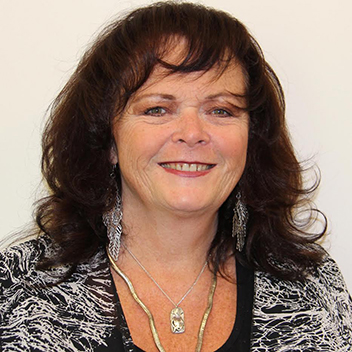

Professor Andrea O’Reilly has published a new book, In (M)otherwords: Writings on Mothering and Motherhood, 2009-2024, a collection of her recent works in the field of motherhood studies

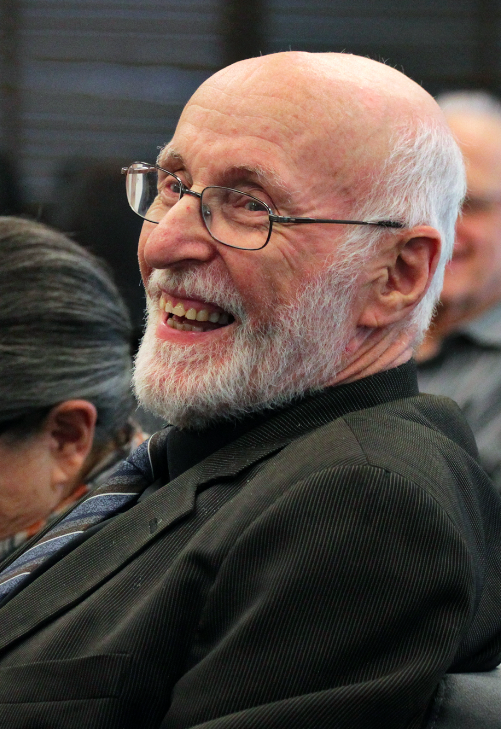
Originally established to foster research specifically on Canada-China interactions, the CIF’s renewal – made possible by the support of the Asian Business & Management Program (ABMP) – looks to address the dynamic evolution of China studies and the importance of understanding China across historical periods, within its social complexities, and as a key player on the global stage.
“In a world where perspectives are constantly shifting, gaining in-depth, multifaceted knowledge of China is crucial,” states Professor Bernie Frolic, ABMP executive director. “With this relaunch, the CIF supports research that digs deeper, embraces inclusivity and helps us forge stronger connections across borders.”
The heart of the CIF’s renewal lies in its expanded funding opportunities. York faculty, graduate students as well as YCAR associates can apply for support in several key areas: organizing workshops, symposia and conferences that bring leading voices in China-related research to York; pursuing innovative research projects that align with CIF’s mandate; facilitating international collaborations between York scholars and those at educational institutions in China; and providing field research opportunities that offer vital, on-the-ground experiences for graduate students.
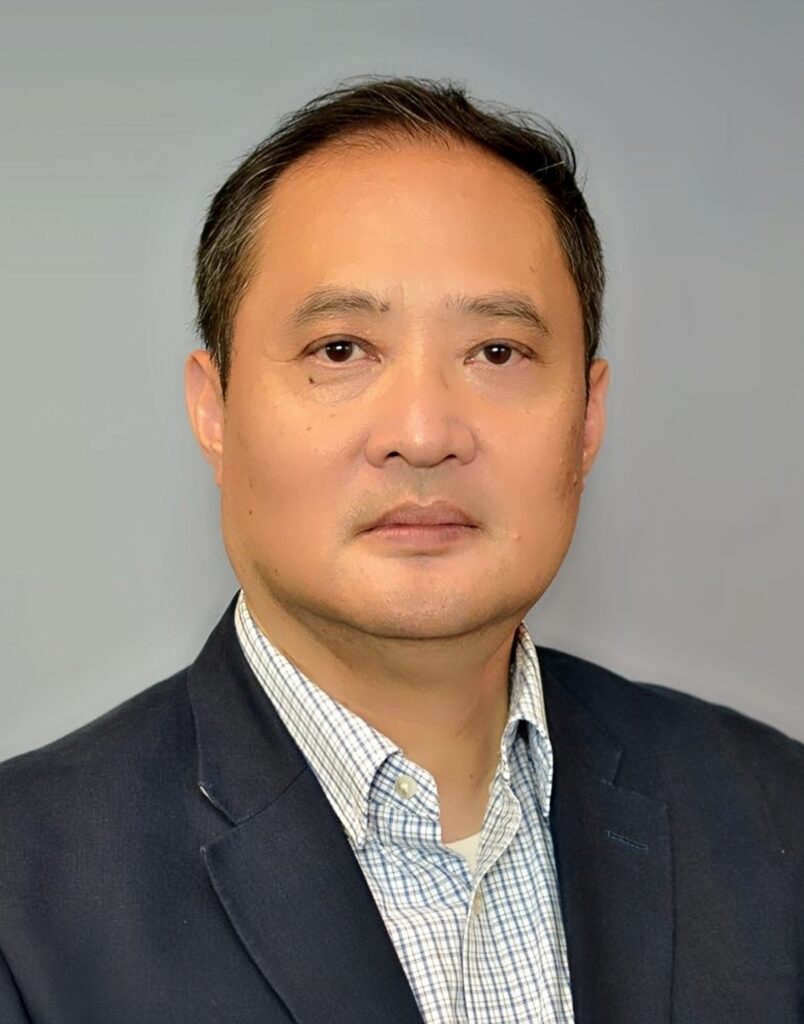
“This fund is an opportunity to establish YCAR as a hub for forward-thinking research into modern China and its rich historical, cultural and geopolitical significance,” says Professor Qiang Zha, YCAR interim director. “As such, YCAR and CIF are keen to cultivate emerging scholars and promote research that delves into the experiences of Chinese communities in Canada to build Canada’s China competency in the new context.”
By supporting diverse projects, the CIF will generate insights that shape research conversations, contribute to informed policymaking, foster intercultural understanding and strengthen vital international relationships.
YCAR encourages the York community and its associates to explore the potential offered by the relaunched CIF. With significant funding available (a minimum of $5,000 and a maximum of $20,000 per application, depending on the type of application), the CIF provides scholars with an opportunity to make a difference in the field of China studies.
The CIF Committee has identified specific priority themes for 2024, reflecting its commitment to reimagining China studies and fostering research on the Chinese diaspora in Canada. These themes include training future China studies scholars, networking Canadian scholars in this field and exploring the experiences of Chinese students in academic settings.
Review the full application guidelines and submit proposals by Monday, May 27. For additional information, visit the CIF website.

Comprising interviews and critical essays, including some by other York scholars, Conrad’s edited anthology explores the history of Canadian AIDS film and video, with a particular focus on the significance of the public access cable television program Toronto Living With AIDS from 1990 to ’91.
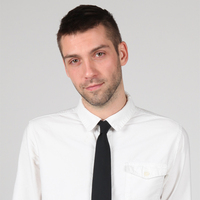
Created and co-ordinated by the late video maker and AIDS activist Michael Balser with York film Professor John Greyson, the program played a crucial role in addressing the HIV-AIDS crisis through community-driven media collaborations. The series paired artists with community organizations to create much-needed educational tapes – that were also culturally appropriate and engaging – about living with and preventing the spread of HIV.
As the book’s principal researcher and editor, Conrad conducted detailed historical work on the Toronto Living With AIDS series, including its creators, public reception, circulation and censorship by Rogers Cable, uncovering previously untold stories.
The project began at York where, as a recent Social Sciences & Humanities Research Council of Canada Postdoctoral Fellow in Cinema and Media Studies, Conrad worked closely with Janine Marchessault, a Tier One Research Chair in Media Arts and Community Engagement who recently received the prestigious Killam Prize, to preserve AIDS activism and history in media.
Conrad’s work forms an integral component of Marchessault’s Archive/Counter-Archive initiative, which seeks to safeguard the audiovisual cultural heritage of marginalized communities.
Conrad’s presentation, “AIDS Activist Media: Toronto Living with AIDS & Second Decade,” presented last July at York University’s Congress 2023 event, further spotlighted ongoing efforts for representation and advocacy within 2SLGBTQIA+ communities.
Conrad, 41, has been participating in activism, researching, writing and making films about HIV-AIDS for nearly two decades. A cultural studies scholar whose work also encompasses queer theory and identity, he is co-founder of the U.S.-based collective Against Equality, which challenges “assimilationist tendencies” in mainstream 2SLGBTQIA+ movements – the subject of his 2011 book Against Equality: Queer Revolution, Not Mere Inclusion.
“Against Equality is not an organization, nor is it a movement. We are merely an archive, and I try to be really humble about what we are doing as a collective and what role we play in the broader social and economic justice movements,” Conrad said in a previously published interview.
“That being said, I think our archive has been influential to some degree in opening up space for more people to have discussions about what kind of political work can and should be prioritized to benefit the greatest number of queer and trans people,” he said. “A vanguardist professional political elite from the gay and lesbian non-profit industrial complex dictating the priorities of a group of people is something we rally against and is a top-down model we aren’t looking to recreate.”
In that way, he has something in common with the archive: through works like Radical VIHsion: Canadian AIDS Film & Video he is opening up overlooked parts of history, and important discussions, around the experiences of 2SLGBTQIA+ people.
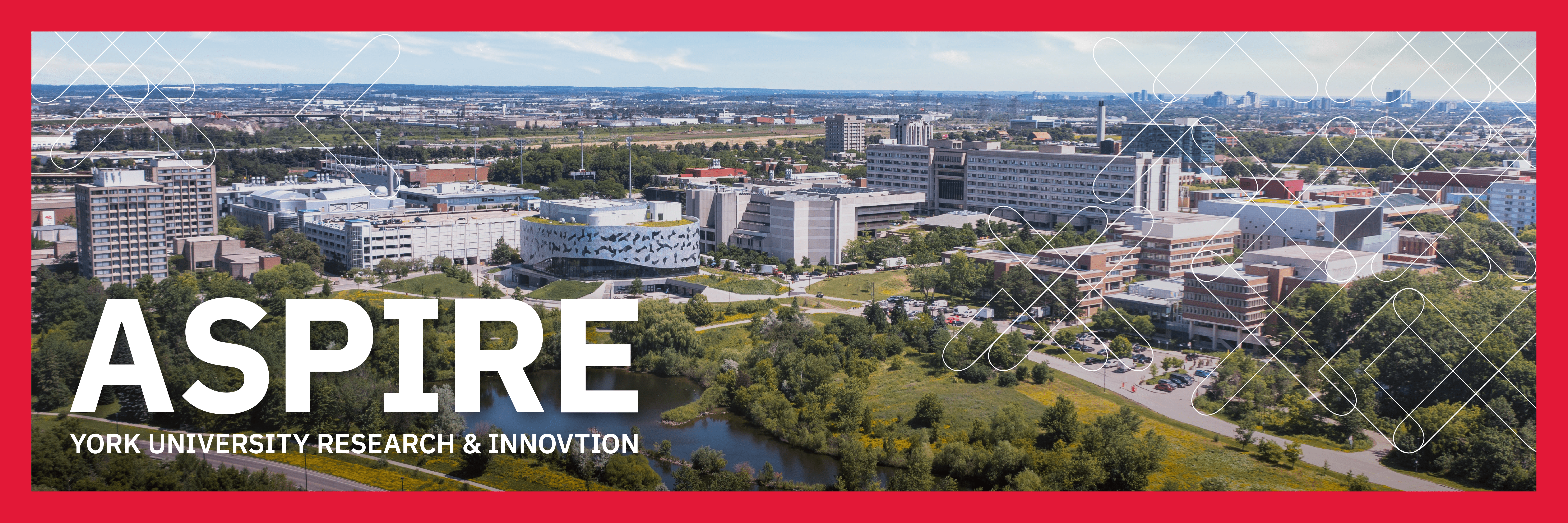
Aspire is produced by the Office of the Vice-President Research & Innovation in partnership with the Communications & Public Affairs Division.
Renowned for its high-profile, research-intensive environment, York University fosters a community of forward-thinking scholars and changemakers dedicated to creating positive, global change.
Prof exemplifies York excellence in global health research through worldwide partnerships
Professor Godfred Boateng is one of many York professors exemplifying the University’s commitments to international collaborations to right the future.
York-led research team invents sustainable de-icing solution
Professor Alidad Amirfazli, along with researchers at Jiangsu University of Technology in China, have led an initiative to create more sustainable ways to de-ice vehicles and more.
Researchers receive grants to advance Indigenous scholarship
Six Indigenous scholars at York have received seed funding to pursue research that explores – among other things – language revitalization, land restoration and more.
Innovators look to commercialize research with York fellowship
Four York researchers are set to commercialize innovations that will help advance sustainability in electronic vehicles, infrastructure and more.

The York Indigenous Seed Fund was established in 2021 by the Office of the Vice-President Research & Innovation in collaboration with the Office of the Vice-President Equity, People & Culture, the Centre for Indigenous Knowledges & Languages (CIKL) and the Indigenous Council, an internal committee at York that works to improve access, input and opportunities for Indigenous peoples in higher education. The fund aims to build on the University’s ongoing commitment to support Indigenous early career researchers, their knowledge creation and the Indigenous communities they are working with.
“York University is wholly invested in advancing Indigenous research excellence, recognizing the critical importance Indigenous perspectives have in the pursuit of new knowledge and learning capable of creating positive change,” said Amir Asif, vice-president research and innovation. “The seed fund grants contribute to an emerging area of research expertise at York focused on Indigenous futurities, which emphasizes scholarship that can directly benefit Indigenous communities and imagines a brighter future for nations, communities and individuals.”
Recipients of these grants, supported through CIKL and the Office of the Associate Vice-President Indigenous Initiatives, include:
“These projects cultivate positive relationships between university-based researchers and Indigenous communities,” said Susan Dion, associate vice-president Indigenous initiatives, who served as co-chair of the committee that reviewed the applications alongside Sean Hillier, interim director of CIKL.
“The institutional commitment to supporting these scholars through the Indigenous seed grant will have impacts beyond their own work and will reverberate throughout the Indigenous communities and peoples they engage with, as well as the wider York community,” said Hillier, as institutional grants for early career researchers provide not only support for foundational and pilot projects but often lead to larger grant proposals.
“The seed fund program is not only about supporting these specific researchers and research programs; it represents a longer-term and wider-ranging commitment to creating conditions in which Indigenous students, colleagues and communities can thrive at York,” said Laina Y. Bay-Cheng, interim vice-president equity, people and culture.
York’s University Academic Plan 2020-2025 affirmed its commitment to the Indigenous Framework and identified six priorities for action for building a better future, including stronger relationships with Indigenous communities.
Additionally, York’s Strategic Research Plan 2023-2028 (SRP) identifies Indigenous futurities as an opportunity to help research make a positive impact on Indigenous communities and advance social, cultural, artistic, legal, policy, economic and justice areas that holistically shape Indigenous experience.
The Indigenous Research Seed Fund supports the goals of York’s Academic Plan and SRP. The pilot round of the fund awarded a total of $204,298 to 10 scholars in May 2022.

By Diana Senwasane
The Commercialization Fellowship program is aimed at preparing and supporting postgraduate students and postdoctoral fellows in understanding the process of transforming academic research into a product or service.
Funded by the Office of the Vice-President Research & Innovation, the program started in 2021, providing a group of annual fellows education on intellectual property (IP) and commercialization, exposure to industry and community partners, experiential learning opportunities, and a $7,500 stipend to use towards creating a proof of concept, testing their prototype and completing validation studies.
“Research commercialization can lead to real-world solutions, turning York community’s great ideas into products and services that provide both social and economic benefits,” said Suraj Shah, associate director of commercialization and industry partnerships.
Aspire spoke with this year’s fellows about the program and their products.
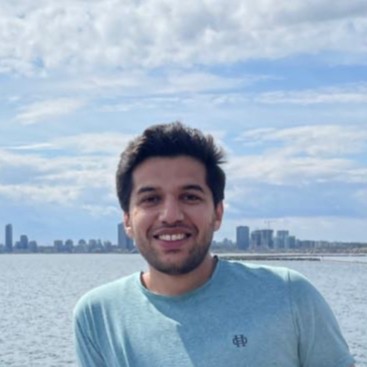
A PhD student in the Department of Mechanical Engineering, Esmaeili’s research leverages the power of machine learning to create new software that could have widespread application in the automotive manufacturing and construction industries.
His software innovation streamlines the way in which materials’ mechanical properties are characterized, eliminating the need for extensive physical testing.
“For designers and engineers, this software offers a way to prototype new parts or evaluate existing materials without ever having to set foot inside a lab,” said Esmaeili.
This could prove useful in many industries such as infrastructure – when it comes to designing and testing structures, like buildings and bridges, to ensure they can withstand forces and automotive manufacturing – where components of a car, like the doors or brakes, consistently operate under various load conditions.
Esmaeili’s software allows users to input specific parameters – such as material composition, environmental conditions and processing factors – resulting in a comprehensive prediction of a material’s behaviour when subjected to external loads.
While the project, under the supervision of Reza Rizvi, an associate professor at the Lassonde School of Engineering, is still under development, the implications are vast. Being able to predict how materials will respond in different environments – without the need to physically test each variation – can dramatically accelerate innovation, reduce costs and promote sustainability in manufactured components, making this an advancement in the manufacturing industry with far-reaching impact.
Esmaeili said the Commercialization Fellowship has helped him utilize code development software and allowed him to conduct validation experiments in the laboratory to ensure the software effectively predicts material behaviour.
He has completed the back-end code of his software and is currently working on developing the front end for the desktop version in the coming months.
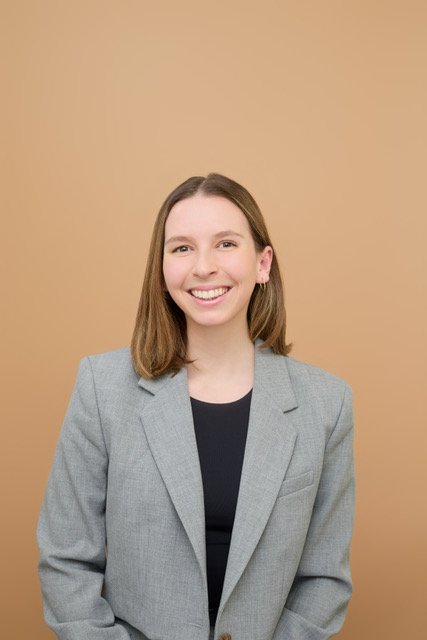
A PhD candidate in the School of Kinesiology & Health Science, Turner’s doctoral research has resulted in the creation of a decision support platform designed to transform how individuals with Type 1 diabetes approach exercise.
Addressing the fine balance between maintaining glucose levels and staying active, the platform allows users to input data about their current glucose levels and planned physical activities. Based on an extensive database of research and insights, it provides personalized recommendations on carbohydrate intake to maintain safe glucose levels during exercise.
“Anyone with Type 1 diabetes can use it,” said Turner. “We’re also hoping that it can be a clinic tool to help individuals, especially those newly diagnosed with Type 1 diabetes, understand how their needs may differ depending on their different types of activity and their current blood glucose levels.”
While exercising has numerous health benefits for individuals living with Type 1 diabetes, it can also make blood glucose management difficult and, in extreme cases, lead to potentially severe consequences, such as low blood sugar levels (hypoglycemia), which could result in dizziness, confusion, seizures or even death.
The platform, led under the supervision of Michael Riddell, a professor in York’s School of Kinesiology & Health Science, Faculty of Health, directly addresses and alleviates these risks, offering a layer of protection and confidence to those affected. And unlike traditional insulin pumps, which may only adjust glucose targets and/or insulin delivery, this platform offers actionable advice for its users.
Turner credits the fellowship with helping her to advance the project and said the monthly check-in meetings, advice on how to bring her idea to market, and hearing about events and opportunities were highlights of the program.
Turner and her team have been working closely with a web developer to develop the platform and they hope to launch it shortly.
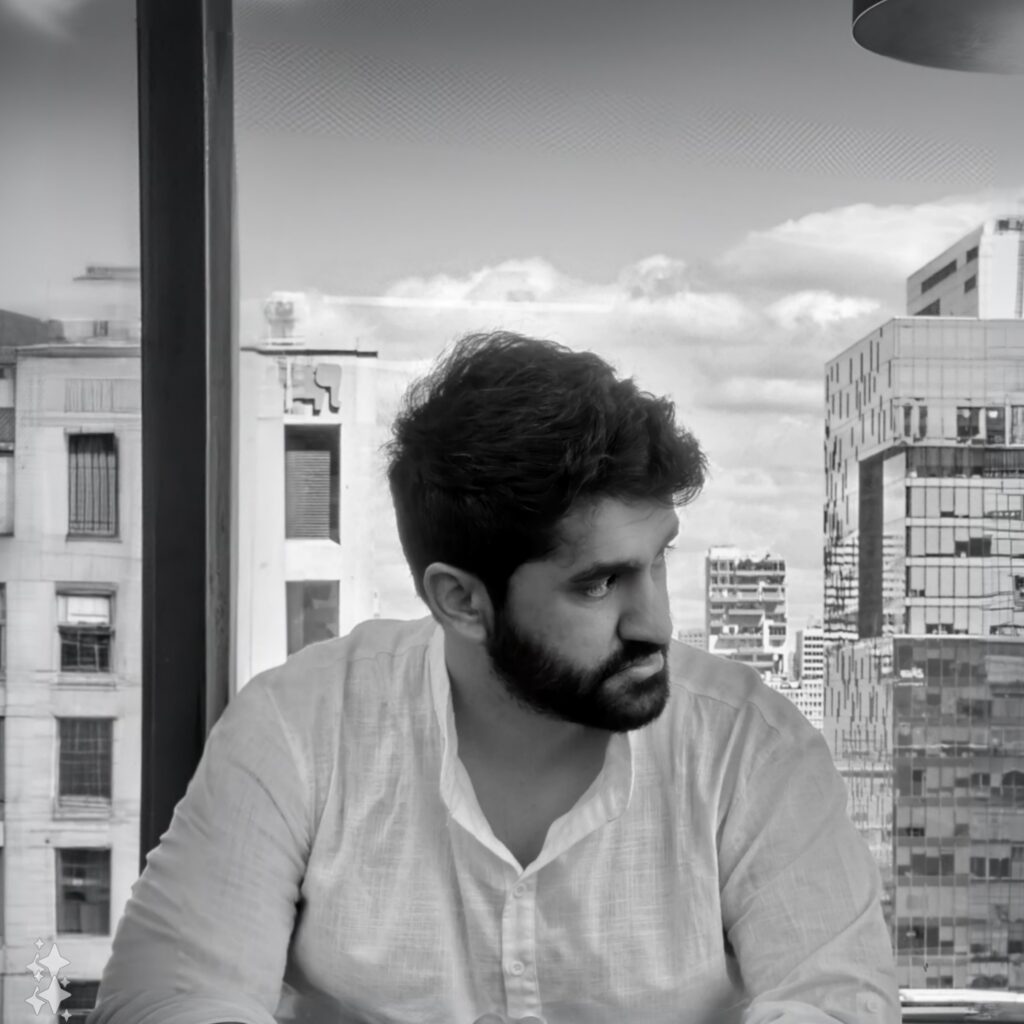
A PhD student in the Department of Electrical Engineering & Computer Science, Mohammadi’s project hones in on tiny machine learning (TinyML) to infuse electric vehicle (EV) chargers with unprecedented levels of intelligence and autonomy, giving them the ability to make decisions without relying on a centralized control system.
TinyML uses artificial intelligence algorithms within the EV charger to independently manage and adapt its operations – ensuring grid stability, predictive maintenance, fault analysis and more. It aims to not only streamline operations but significantly mitigate the potential for system-level power issues as the number of EVs and chargers continue to enter the market.
The project, supervised by Afshin Rezaei-Zare, an associate professor at the Lassonde School of Engineering, reflects a broader shift toward a smarter, more efficient way of managing energy resources, especially as we pivot to renewable and clean energy solutions. Through the integration of TinyML technologies, EV chargers can seamlessly synchronize with the energy grid, efficiently distributing power without overwhelming the system.
“For the everyday consumer and the environmentally conscious, this project is a pivotal step toward sustainable electric vehicle adoption,” said Mohammadi. “By integrating smart, autonomous chargers into the energy grid, we’re looking at a smoother, more reliable transition to green mobility solutions across the globe.”
Mohammadi said the Commercialization Fellowship provided him with critical information for commercialization, IP management and connections with lawyers through the IP Innovation Clinic.
He is currently in the process of developing a prototype, which is anticipated to be completed mid-summer.
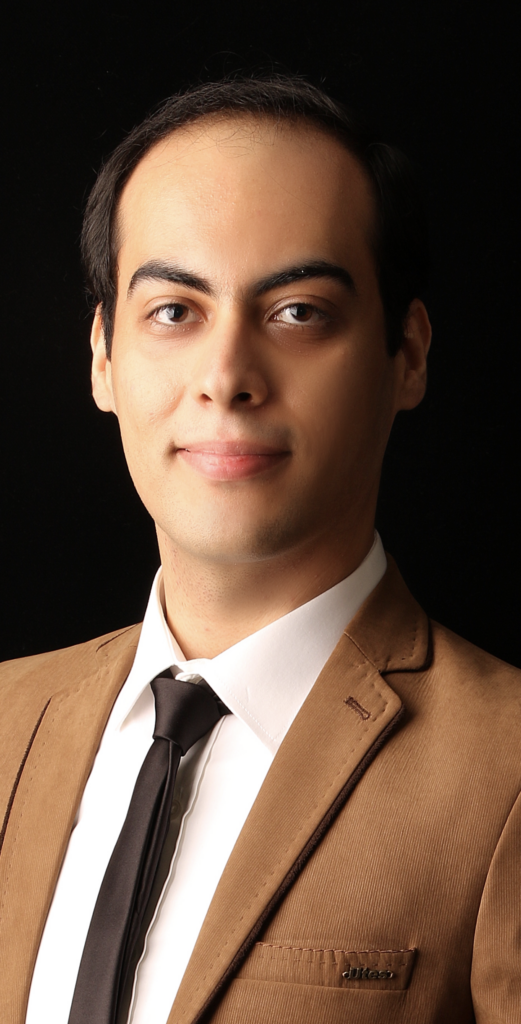
A third-year PhD candidate in the Department of Electrical Engineering & Computer Science, Derakhshan’s research aims to revolutionize on-board EV chargers. Deviating from traditional unidirectional charging methods, which function only to charge, Derakhshan has created a bidirectional converter, allowing the charger to not just power a car but also harness its battery power.
The innovation unlocks tremendous possibilities – from lighting up homes during blackouts or emergencies to contributing power back to the grid during peak demand.
Under the supervision of John Lam, an associate professor in the Lassonde School of Engineering, Derakhshan’s converter enhances existing on-board EV chargers in the market by making modifications such as reducing the size of the traditionally bulky capacitor by 20 times, which improves the lifespan of the on-board charger, its efficiency and reduces the potential for thermal issues such as overheating.
“What we are trying to do is to improve the reliability, efficiency and power density of these converters,” he said. “We are designing better and more robust control systems to better support the power grid.”
Derakhshan says the fellowship’s workshops helped him understand the importance of IP and patenting his idea. He also found value in being able to connect with industry and showcase his work to industry partners.
Derakhshan has designed the prototype for his converter and has successfully tested it for charging. He is currently working on the next phase to test the bidirectional component.
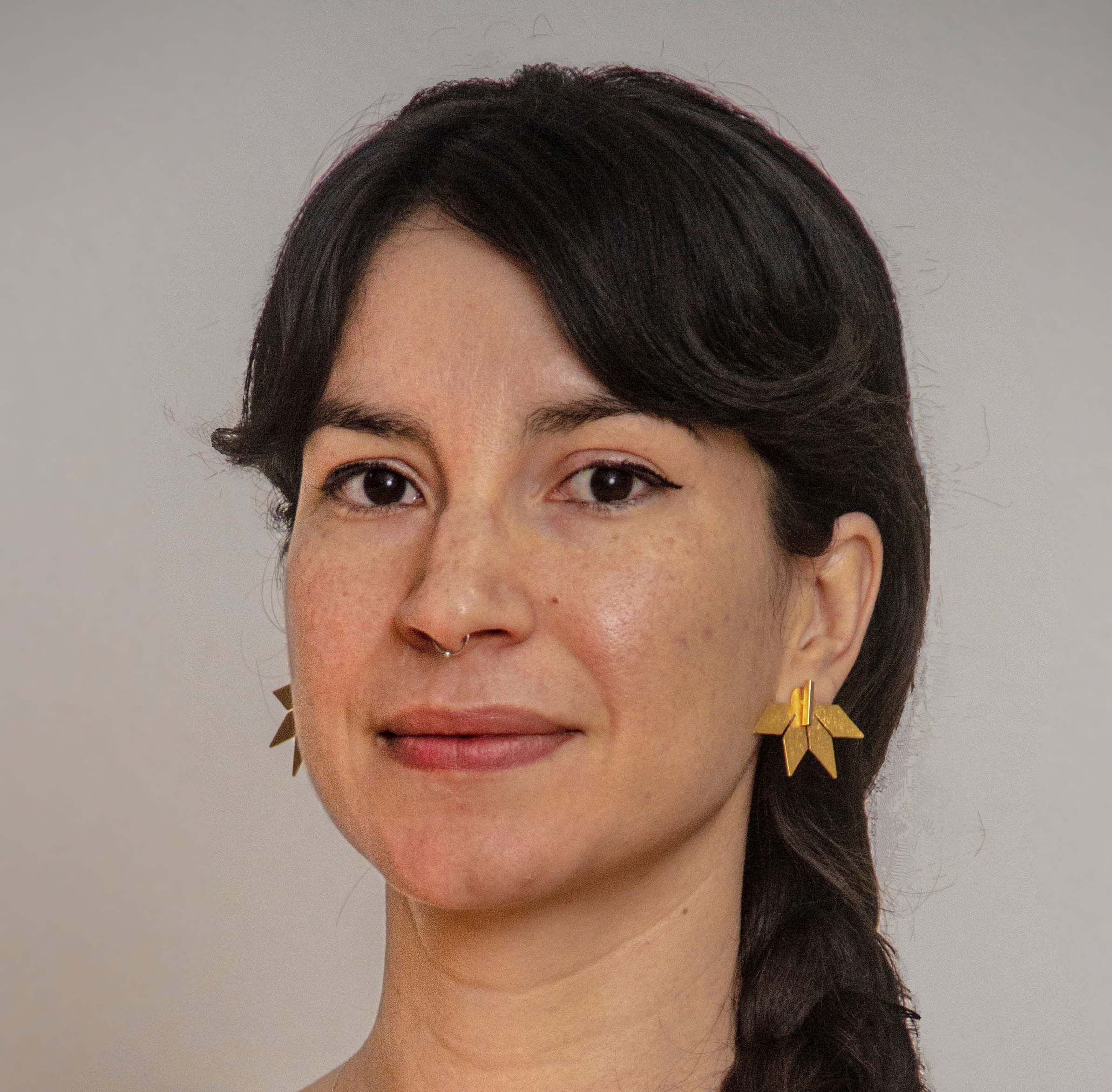
Seguridad, a film by York alumna Tamara Segura that investigates her family’s complicated history, will receive its Canadian premiere at the Hot Docs Festival

By Corey Allen, senior manager, research communications
Forging strong relationships beyond geographical boundaries enables the York community to conduct meaningful work that defines the University’s approach to research and innovation: interdisciplinary, collaborative and equitable.
Among those leading the way in this is Boateng, a quantitative sociologist and epidemiologist who was recently appointed Canada Research Chair (CRC) in Global Health and Humanitarianism.
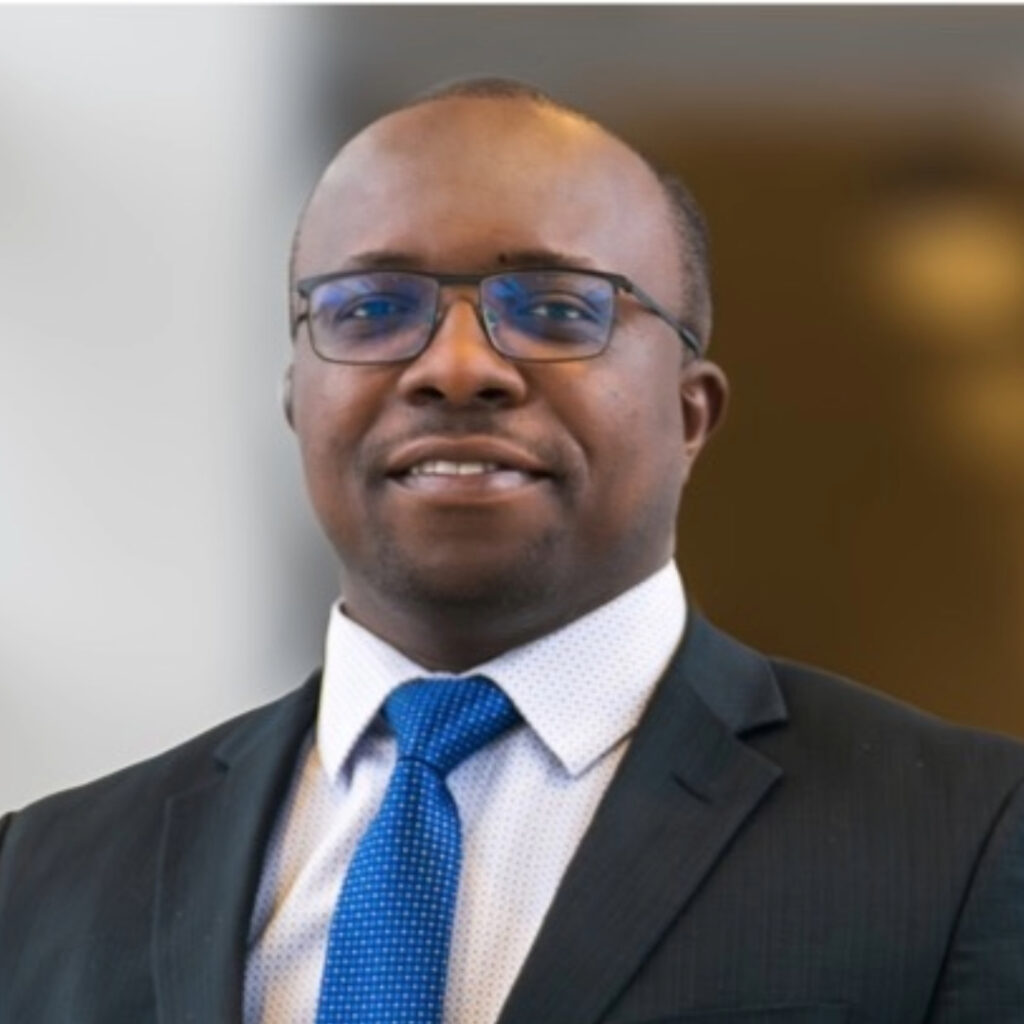
One of Boateng’s latest research projects is related to his CRC appointment, which aims to measure and quantify different forms of resource insecurity, including food, water, energy and housing, as well as to advance our understanding of the overall health effects of environmental contaminants, both in the Global South and in Canada. This work exemplifies, he said, the importance of having international partners and collaboration.
“Partnerships are key and without them, global health research isn’t possible,” he said. “York University’s partnerships in the Global South greatly expand the scope of my research and allow me to reach populations and communities that would not be accessible otherwise.”
Boateng’s project looks to collect physiological, ecological, and demographic data from informal settlements in sub-Saharan Africa and Latin America.
Using high-cost field equipment, the researchers will assess the quality of the air and water samples (stored, drinking and groundwater) found in and around the settlements.
The data will be used to validate scales, like the Household Water Insecurity Experiences Scale, co-developed by Boateng for use by public health practitioners, non-governmental organizations, government officials, and development agencies to monitor and assess progress on targets set out in the United Nations Sustainable Development Goals around achieving equitable access to safe and affordable drinking water, as well as adequate and equitable sanitation and hygiene.
This is particularly important in sub-Saharan Africa, where flooding due to climate change is a considerable health risk and bacterial infections like dysentery and waterborne illnesses like cholera are widespread.
The scales would help researchers and health-care professionals to assign a score to the environmental contaminants found in settlement households, which enables them to determine if water, for example, is safe for consumption without the need for further testing.
For local governments, this would streamline water, air, and housing quality assessments and provide valuable information to inform health-care policy and decision-making.
“Our project will also produce the necessary data for comparative studies, so that this evidence can be used in other contexts, including in some Indigenous communities in Canada that face similar resource insecurity challenges,” said Boateng.
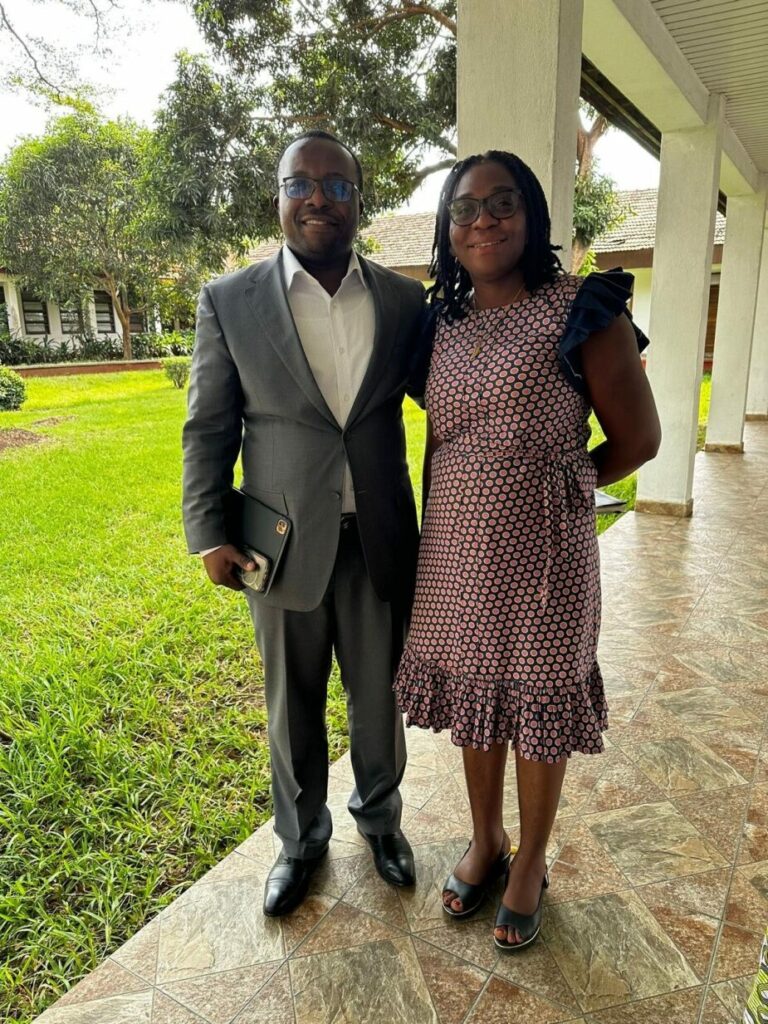
The project is slated to start this summer with 300 households in Accra, Ghana, alongside Boateng’s partners from his alma mater, the University of Ghana, and the University of Cape Coast, before moving onto research sites in Nigeria, Kenya and Malawi, and subsequently to Colombia and Mexico.
Last month, Boateng was also part of a York delegation that visited Ghana, Nigeria and Kenya. The Africa trip helped the University engage with prospective students and explore partnership opportunities with local universities and research institutions.
For Boateng, studying global health helps bridge the inequality divide.
“It’s important to identify the sources of health disparities and the structural determinants of health, so that proper interventions can be put in place,” he said.
“Global health research, when applied, can not only enhance the quality of life for the world’s most vulnerable populations – women, children and seniors – but it also has life-saving potential for people worldwide. It’s teamwork at its best.”
Learn more about York University’s Global Engagement Strategy.

By Diana Senwasane
From aircraft to ship decks to cars to power lines and much more, ice can pose extreme danger. The unsafe and risky conditions ice creates has led a York University researcher to investigate new ways of effectively preventing ice accumulation. Amirfazli and the JSUT researchers are in the early stages of what they believe will be both an innovative – and sustainable – de-icing solution.

In a paper published earlier this year, the researchers detail their invention of a coating that combines superhydrophobic properties, which repels water, with Prussian blue, a compound made of complex inorganic salt typically used in paint, to effectively prevent and remove ice from surfaces.
“The developed coating harvests energy from sunlight to warm the surface,” said Amirfazli. “Its repellency properties reduce the chance of water staying on the surface and freezing, essentially ceasing icing.”
Amirfazli said the unique addition of Prussian blue to the coating is more cost effective, avoids cracking and improves durability.
The innovative solution is born out of a long-standing research collaboration between Amirfazli and his former postdoctoral student Professor Wen Li, now based at Jiangsu. The duo worked on several projects, including a previous paper on de-icing where they combined a superhydrophobic coating heated with electricity.
Amirfazli has spent years studying various coating strategies for de-icing, but it wasn’t until this international research partnership that this solution emerged.
Prussian blue is able to harness the energy of sunlight, effectively replacing the electric component and the use of wires, which was previously proposed as a de-icing solution.
Under Amirfazli’s supervision, the JSUT research team will continue to test their coating solution for de-icing, which could have widespread application in multiple sectors, like aviation, energy systems, construction, infrastructure and more.
“This solution can reduce icing of surfaces that cause hazardous conditions such as steps and walkways, reducing the probability of slipping, or mitigating the icing on wind turbines, which can reduce power production in winter months,” said Amirfazli.
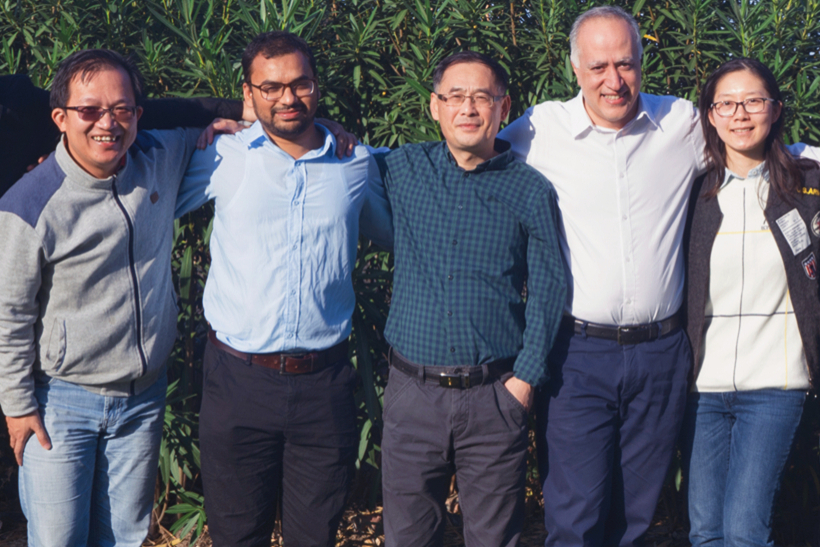
While the coating is a long way from being in market, this is a significant step for the team of researchers.
“Throughout my career I have benefited from collaborations and knowledge sharing with many colleagues from around the world,” said Amirfazli. “Knowledge has no boundaries, creating an inherent strength for human ingenuity. This project is a perfect example of that.”

Formerly known as Canada’s Next Top Ad Exec, CML recently hosted 270 student contenders hailing from 26 universities nationwide. Participants engaged in complex marketing challenges – provided by leading companies such as Microsoft, McDonald’s, Kraft Heinz and Environics Analytics – to win top spots in the competition.
For several years, CML has provided York marketing students an opportunity to excel, succeeding in the competition itself, gain experiential learning, and demonstrating their abilities. “This platform has offered fantastic opportunities,” says Professor Pallavi Sodhi, who dedicated countless hours this year mentoring students in preparation for CML. “For students, it has provided transformative experiences to showcase their marketing skills, determination and passion. Companies have benefited from groundbreaking ideas to address their most challenging business issues and access ready-to-go marketing talent.”
This year, Amanda Volpato, a fourth-year York SAS student majoring in marketing, won the first place, securing the esteemed CML grand prize of $20,000. It marked not just a professional accomplishment but a personal one, too. Seven years ago, Volpato arrived in Canada from Mato Grosso, Brazil knowing little English and struggling with mental health challenges. Nonetheless, she persevered to become an up-and-coming – and now award-winning – marketer. “Participating in CML has truly shown me that sticking to a strong work ethic is always worth it. For any international student who is struggling with mental health and may be reading this, don’t give up, there is light at the end of the tunnel,” she says.
In addition to Volpato, other members of SAS also won awards.
The Top CML Alumni award was presented to Jacky Li, a former student and Top 10 CML winner in 2014, who is now a strategy director at renowned creative marketing and communications agency Cossette, and continues to serve as a mentor to numerous students, emphasizing the value of experiential learning.
Nicole Rodrigues, a fourth-year bachelor of commerce student, was also recognized, earning her the second prize of $750 for her role as a campus engagement leader. As one of the 47 campus managers, Rodrigues actively promotes CML at York through information booths and class talks.
These York community members add to an ever-growing catalogue of students and alumni who have earned top prizes at CML – a tradition bound to continue.
About the Competition: Canadian Marketing League/Canada’s Next Top Ad Exec was launched in 2007, with the goal to bridge the gap between classroom and industry. Today it has grown to be the largest marketing case competition in Canada, structured in a 3-phase process mirroring the intensity of NHL/NBA. To date more than 50 competitors have been awarded career-starts at major corporations and more than $575,000 in prize money has been awarded.